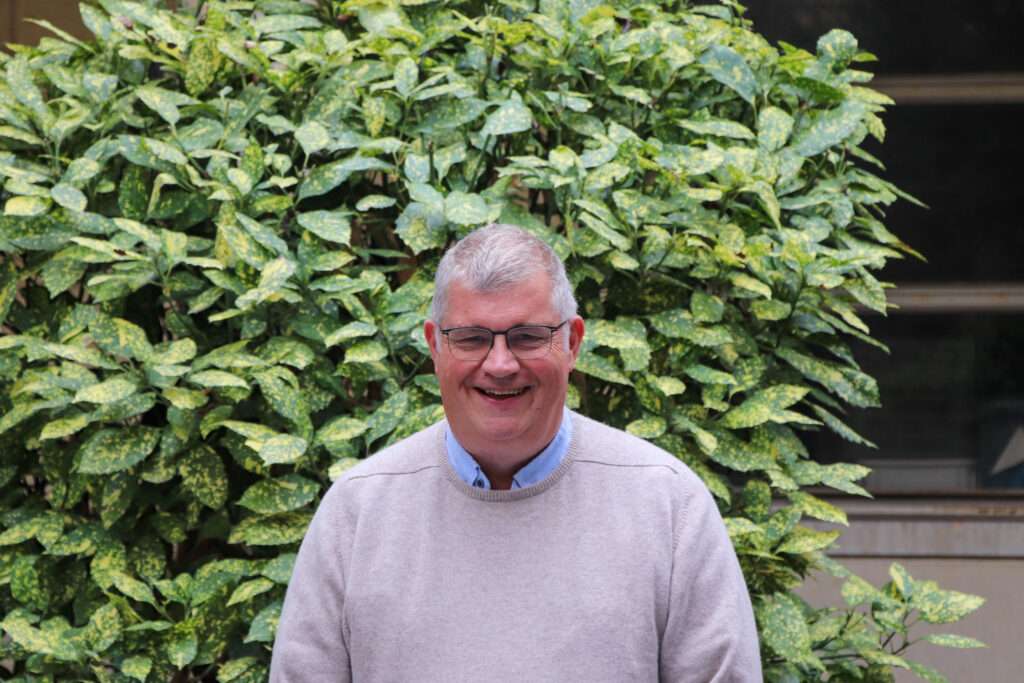Philippe Baret
Philippe Baret is a professor at the University of Louvain (Belgium). His fellowship at the Montpellier Advanced Knowledge Institute on Transitions ran from 1 September 2023 to 30 April 2024.

Biography:
Philippe Baret is a professor at the University of Louvain, where he teaches genetics, systems analysis and agroecology at the Faculty of Bioscience Engineering and the Earth and Life Institute.
He leads the SYTRA team, which is dedicated to facilitating the transformation of agricultural and food systems. Their approach emphasises inclusivity and systemic thinking, exploring different agricultural production methods to identify potential transition pathways. Philippe Baret’s research focuses on overcoming lock-ins, reducing pesticide use and protein transition in agro-ecological contexts.
The SYTRA team is actively developing foresight tools to anticipate changes in agricultural practices at regional and national levels. They contribute to European projects such as FOODCOST and Enfasys.
Philippe Baret was also a visiting professor at the University of Rome III and the University of Ouagadougou. His memberships include the Académie Royale de Belgique, the Académie d’Agriculture de France and the Scientific Council of CIRAD.
Research interests :
- Agroecological transition;
- Food systems;
- Seed systems;
- Lock-ins
Project: A meso-level approach: methodological and conceptual challenges for agroecological transitions of food and seed systems.
The upscaling of agroecological transitions will benefit from a better articulation of the micro-level (farmers, consumers, …) and themacro-level (policymakers, institutional strategies, …). The meso-level is made of the intermediate actors and activities that bridge these two levels. This project will explore the potential of a better understanding of the meso-level to overcome the lock-ins to transition in two different contexts: a territorial context in collaboration with the Innovation research unit and the seed network context with the research unit on ‘Genetical Improvement and adaptation of Mediterranean and tropical plants’ (AGAP).
Why a fellowship in Montpellier?
In the field of agronomy, Montpellier is a place where agronomy from the North and the South meet: there are both INRAE research centres and those of CIRAD, a major specialist in agronomy in the countries of the Global South. Montpellier has always been a benchmark for meeting a diversity of people and a diversity of points of view. I found it motivating, stimulating.
Recent publications on Philippe’s ORCID profile include:
- Morel, K., Revoyron, E., San Cristobal, M. and Baret, P.V. (2020). Innovating within or outside dominant food systems? Different challenges for contrasting crop diversification strategies in Europe. PLOS ONE, 15(3), p.e0229910. doi:https://doi.org/10.1371/journal.pone.0229910.
- Dumont, A.M., Gasselin, P. and Baret, P.V. (2020). Transitions in agriculture: Three frameworks highlighting coexistence between a new agroecological configuration and an old, organic and conventional configuration of vegetable production in Wallonia (Belgium). Geoforum, 108, pp.98–109. doi:https://doi.org/10.1016/j.geoforum.2019.11.018.
During his fellowship in Montpellier, Philippe wrote this article:
- Duluins, O. and Baret, P.V. (2024) ‘A systematic review of the definitions, narratives and paths forwards for a protein transition in high-income countries’, Nature Food, pp. 1–9. Doi: https://doi.org/10.1038/s43016-023-00906-7.